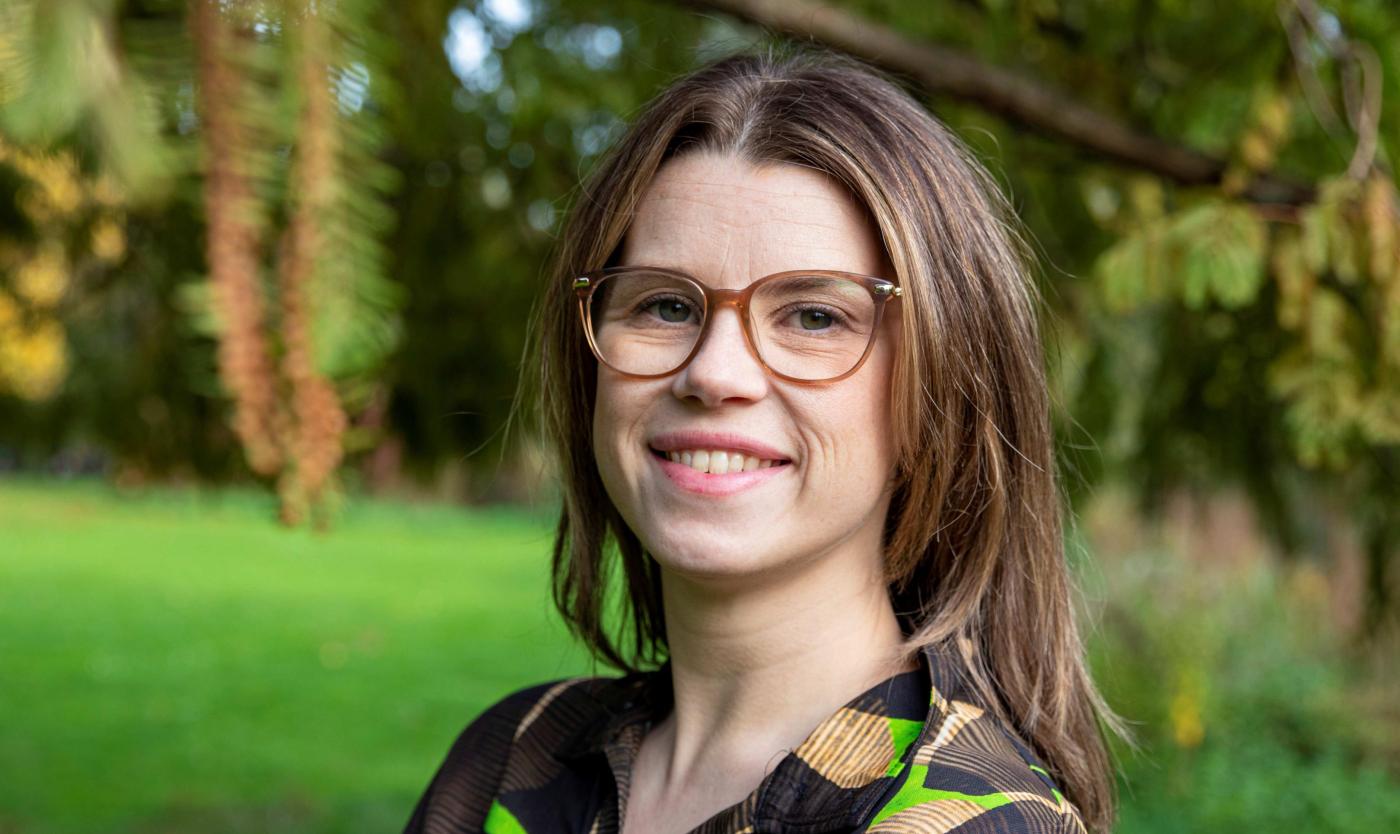
On 15 May, the Cybele Fund marks a new milestone in the fight for reliable information about medication use during pregnancy and breastfeeding. What began as a private initiative by three professors at KU Leuven is now entering a new phase, thanks to support from the VUB Foundation. The project is now led by VUB researcher Eline Tommelein, whose mission is to ensure women have access to trustworthy, science-based information and to dispel persistent myths.
How long have you been involved in the Cybele project?
“Cybele was founded 25 years ago by KU Leuven professors Gert Laekeman, Jan Van Damme and Paul Van Herzele. I became involved three years ago because the subject aligns perfectly with my own research. Now that the founders have retired, I was asked to take the project further. I grabbed that opportunity with both hands. The original founders remain active in our steering group and editorial board, which helps ensure a smooth transition. We’re incredibly grateful for all the work they’ve done.”
What does the integration with the VUB Foundation mean?
“Until recently, Cybele was a private initiative with no structural funding. Thanks to the VUB Foundation, we can now scale up the project. People can donate, organise fundraising campaigns, and we’re actively seeking partnerships with companies. A significant portion of the budget will go towards expanding the website. It’s already heavily used by healthcare professionals, with 60,000 page views a month. We want to broaden the content and improve usability. In addition to information about medication during the various stages of reproduction, we also aim to cover supplements, herbal remedies and common health concerns. Cybele should become the go-to platform for evidence-based information on pharmacotherapy during pregnancy and breastfeeding—not just for healthcare providers, but for the general public too. By informing women better, we improve the dialogue between patient and provider and contribute to better healthcare. We expect the revamped platform to be fully operational within 18 months.”
Why is this subject so important?
“Medication use during pregnancy and breastfeeding is often underrepresented and rarely black-and-white. Of course, we start from the principle: avoid medication if possible. But we don’t want women to suffer unnecessarily. Many safe medications do exist. Clinical studies involving pregnant women are difficult, but we have large databases with information about medicine use during pregnancy, which help us assess safety. Cybele makes it possible to share that knowledge with the wider public. Besides our own research, data from other universities will also be included.”
What does your own research focus on?
“I’m working on the ADORE project, where we’re studying the use of ADHD medication in women of reproductive age, from preconception to breastfeeding. How safe are these medicines? Can we adjust care accordingly? What impact do they have on hormone levels and breastfeeding success? ADHD in women has long been overlooked. It manifests differently to how it does in men, often leading to delayed diagnosis. We’re now seeing more diagnoses among women in their twenties and thirties—precisely when reproductive questions arise. Each year, around 3,000 women with ADHD give birth in Belgium. Not all of them take medication, but many do. They deserve clearer guidance.”
“Every nine months of breastfeeding lowers your risk of breast cancer by 4%”

Eline Tommelein
You also research breastfeeding challenges?
“Yes. In the US, breastfeeding medicine is a recognised specialty. Here, it’s often treated as a side issue. Yet half the population has breasts—there are as many breasts as there are people. There’s a serious lack of knowledge about related conditions: nipple vasospasms, fissures, latching issues, breast infections, and the impact of augmentation or reduction surgeries. Women facing these issues are too often dismissed with ‘just give a bottle then’, even though they’re seeking help to continue. I hope for a society that supports breastfeeding and looks at both breastfeeding and formula feeding without judgement. 'Mum-policing' goes both ways—first it’s ‘why aren’t you breastfeeding?’ and later ‘why are you still doing it?’. We need to stop that. Healthcare providers, too, need to look beyond their own experience and rely on scientific evidence.”
How common is medicine use during pregnancy and breastfeeding?
“Between 80% and 90% of pregnant women, and almost all breastfeeding mothers, use health products—medications, supplements, or herbal remedies—whether for acute or chronic conditions. This often comes with anxiety and guilt. Think of women who took medicine before realising they were pregnant and worry they’ve harmed the baby. Or those who avoid essential medication out of fear or poor advice, and suffer needlessly. I’ve also supported many breastfeeding mothers as a lactation consultant. In Flanders, 83% of women start breastfeeding after birth, but after six months, that figure drops to 36%. Poor advice about medication use certainly plays a part. Accurate information would not only ease worries but also strengthen our healthcare system. Breastfeeding benefits both baby and mother. Did you know that each additional nine months of breastfeeding reduces the risk of breast cancer by 4%? It’s the most effective prevention method we have—yet not widely known. If Belgian women breastfed for an average of six months, we could prevent thousands of breast cancer cases each year.”
“It’s unfair that women must make decisions based on insufficient scientific evidence, simply because of historical underfunding of women’s health research”
What insights can you already share about medicine use?
“Many medicines can be safely used during pregnancy. Think of paracetamol, antihistamines, and antacids—but also anti-nausea treatments like Primperan or ginger extracts. Antibiotics require careful selection, but there are safe options. During breastfeeding, nearly all anti-inflammatories, paracetamol, and antihistamines are safe. Even most biologicals—injectables used for inflammatory conditions like Crohn’s disease and rheumatoid arthritis—can be used safely.”
Are there any absolute no-go medicines?
“I’d say there are very few true no-gos. Valproic acid is a classic example of higher risk. While 2–4% of babies born to healthy women have a congenital condition, that risk increases to 8–10% with this anti-epileptic. But that still means there’s a 90% chance nothing will go wrong. Sometimes, continuing the medication is the better option, because stopping could be more dangerous. A serious epileptic seizure nearly always results in pregnancy loss. So, every case requires individual assessment: how severe is the patient’s condition? The same applies to antidepressants and ADHD medication. Functioning well is more important than avoiding every possible risk.”
What’s your personal mission?
“I think it’s deeply unfair that women have to make health decisions with so little scientific evidence, simply because research into women’s health has historically been underfunded. That’s what drives me. Everyone deserves accurate information—especially during pregnancy and breastfeeding. That’s why it’s so important healthcare professionals are well-informed. Only then can they help women make well-grounded decisions with minimal risk. Saying ‘just don’t take any medication’ is often unhelpful. Sometimes, prescribing something is actually the better choice because the burden is just too high otherwise.”
Where are the biggest gaps?
“Funding for research remains a major issue. For many medicines, there’s simply no data available, which makes it difficult to make good choices. More research into anti-epileptics could help with switching to safer options before pregnancy. The same goes for medications used in chronic conditions. And then there are newer drugs like Ozempic. What do we do with those during pregnancy? Stop? Pause treatment? We urgently need more research in that area.”
“Professors used to be locked away in their ivory towers. I think we need to be accessible. Social media are hugely valuable for that”
You’re currently pregnant yourself. Has that changed your perspective as a researcher?
“You might think all this knowledge would make me more anxious, but it’s actually reassuring. I know the warning signs, when to see a doctor, and where to find trustworthy information. I also know I can challenge a doctor’s opinion—even if they don’t always like that. Fear, I think, is the biggest enemy during pregnancy and breastfeeding. If you can approach those phases with calm and confidence, that’s the best gift you can give yourself.”
You have over 13,000 Instagram followers and run a training company for healthcare professionals. What motivates you?
“On Instagram, I focus mainly on breastfeeding and infant feeding, because there’s so much misinformation out there. Like the idea that medication poisons your baby, or that each breast needs to be emptied equally every time. It’s almost a full-time job debunking all the myths. Reality is usually much more nuanced—but nuance doesn’t work well on social media. Still, I keep going. I dream of a world where families don’t have to justify their feeding choices, and where decisions are based on accurate information. I see it as my responsibility as a professor to contribute to that. Professors used to be hidden away in their ivory towers. I think we need to be approachable. We have so much knowledge—it should be shared as widely as possible, so people can actually benefit. Social media are a huge asset in that regard, precisely because they’re so accessible. It takes time and energy, but it’s absolutely worth it.”
Want to learn more or offer your support? www.cybele.be